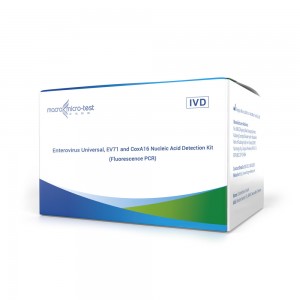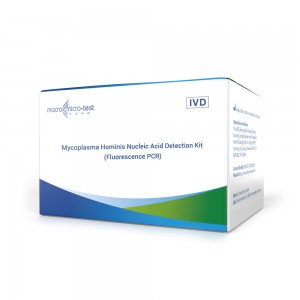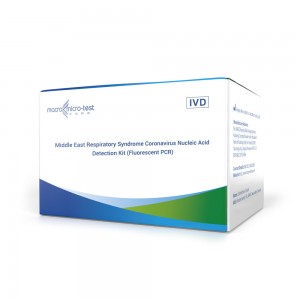Mycoplasma hominis, Ureaplasma urealyticum and Gardnerella vaginalis Nucleic Acid
Product name
HWTS-UR044-Mycoplasma hominis, Ureaplasma urealyticum and Gardnerella vaginalis Nucleic Acid Detection Kit (Fluorescence PCR)
Epidemiology
Mycoplasma hominis (MH) is a type of mycoplasma that exists in the urinary tract and genitals and can cause urinary tract infections and genital inflammation. Mycoplasma hominis is widely present in nature and is associated with a variety of genitourinary tract infections such as nongonococcal urethritis, female cervicitis, adnexitis, infertility, etc. Ureaplasma urealyticum (UU) is the smallest prokaryotic celled microorganism that between bacteria and viruses and can live independently, and it is also a pathogenic microorganism that easily causes reproductive tract and urinary tract infections. For men, it can cause prostatitis, urethritis, pyelonephritis, etc.; for women, it can cause inflammatory reactions in the reproductive tract such as vaginitis, cervicitis, and pelvic inflammatory disease, and is one of the pathogens causing infertility and miscarriage. The most common cause of vaginitis in women is bacterial vaginosis, and the important pathogenic bacterium of bacterial vaginosis is Gardnerella vaginalis. Gardnerella vaginalis (GV) is an opportunistic pathogen that does not cause disease when present in small amounts. However, when the dominant vaginal bacteria Lactobacilli are reduced or eliminated, causing an imbalance in the vaginal environment, Gardnerella vaginalis multiplies in large numbers, leading to bacterial vaginosis. At the same time, other pathogens (such as Candida, Neisseria gonorrhoeae, Mycoplasma hominis, etc.) are more likely to invade the human body, causing mixed vaginitis and cervicitis. If vaginitis and cervicitis are not diagnosed and treated in a timely and effective manner, there may be ascending infections by the pathogens along the reproductive tract mucosa, easily leading to upper reproductive tract infections such as endometritis, salpingitis, tubo-ovarian abscess (TOA), and pelvic peritonitis, which may lead to serious complications such as infertility, ectopic pregnancy and even adverse pregnancy outcomes.
Technical Parameters
| Storage |
≤-18℃ |
| Shelf-life | 12 months |
| Specimen Type | male urethral swab,female cervical swab,female vaginal swab |
| Ct | ≤38 |
| CV | <5.0% |
| LoD | UU, GV 400Copies/mL; MH 1000Copies/mL |
| Applicable Instruments | Applicable to type I detection reagent:
Applied Biosystems 7500 Real-Time PCR Systems, QuantStudio®5 Real-Time PCR Systems, SLAN-96P Real-Time PCR Systems (Hongshi Medical Technology Co., Ltd.), LineGene 9600 Plus Real-Time PCR Detection Systems (FQD-96A, Hangzhou Bioer technology), MA-6000 Real-Time Quantitative Thermal Cycler (Suzhou Molarray Co., Ltd.), BioRad CFX96 Real-Time PCR System, BioRad CFX Opus 96 Real-Time PCR System. Applicable to type II detection reagent: EudemonTM AIO800 (HWTS-EQ007) by Jiangsu Macro & Micro-Test Med-Tech Co., Ltd. |
Work Flow
Macro & Micro-Test Viral DNA/RNA Kit (HWTS-3017) (which can be used with Macro & Micro-Test Automatic Nucleic Acid Extractor (HWTS-3006C, HWTS-3006B)), and Macro & Micro-Test Viral DNA/RNA Kit (HWTS-3017-8) (which can be used with EudemonTM AIO800 (HWTS-EQ007)) by Jiangsu Macro & Micro-Test Med-Tech Co., Ltd.
The extracted sample volume is 200μL and the recommended elution volume is 150μL.








